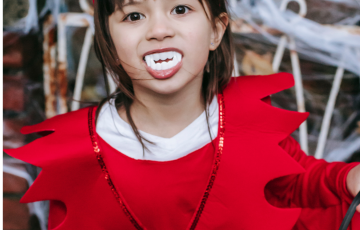There is no way to create a perfectly safe, child-proof world. As they grow, children will become more independent and will need to learn to keep themselves safe. Teach her risk-assessment skills to help her avoid dangerous situations.
Keep safety rules and expectations clear and consistent.
- insist that your child always wear a helmet when biking, rollerblading, or skateboarding - do the same yourself
- protect your child's teeth during sports with a mouth guard
- talk to your child about risks and how he can make choices to steer clear of danger
- many serious home accidents can be prevented
- find out how to make your house a safe place for school-aged children
- introduce strategies to help your children deal with bullies and protect themselves from abuse
- remember to keep danger and safety in perspective
- your child needs opportunities to practice independence, assess risks and make safe decisions
Concussions
Getting a concussion during childhood can temporarily interfere with the way the brain works and interrupt the development of critical cognitive and communication skills. One way to reduce the incidence of childhood concussions is by raising awareness among parents, coaches, children and youth participating in sports.
For more information on concussion prevention, visit Parachute Canada (formerly Safe Kids Canada) and HealthLink BC.
Bully Proofing
As children get older, their social circle expands to include friends from school, after-school care, sports and clubs.
The best defence against bullying is to stay involved in your child’s activities and encourage him to talk to you about his day – the good the bad, and the ugly. Listen carefully.
Help prevent bullying in your child’s life
- teach your child that they deserve to feel safe wherever they go
- if anyone makes your child feel unsafe, they should tell you - you can help them feel safe again
- recognize that all children can be seduced by playground power
- it is as possible your child may bully others as it is that they are a victim
- match for signs of both fear and/or aggression in your child
- if your child does mention an incident where they have been involved in or a target of name-calling, taunting, aggression or physical violence, take a deep breath
- investigate the situation with your child, your child’s teacher, principal, coach and/or other parents
- a calm, rational approach to solving the problem is the best way to help your child
- take your child’s concerns about bullying seriously
- long-term bullying can cause serious mental and social development problems for a child
Personal Safety
Prevention is a parent’s key role in the personal safety of their child.
- continue to update child-proofing in your home
- school-aged children may no longer be at risk for drinking toilet bowl cleaner but they may be tempted to do chemical experiments in the bathroom
- make safety precautions family rules
- everyone wears helmets while bike riding, rollerblading, and skateboarding
- everyone buckles his or her seatbelt for every car trip
- everyone wears sunscreen
- everyone wears a lifejacket out on the boat
- keep a close eye on children
- though they are more self-reliant and independent, school-aged children still need supervision
- provide your child with lessons and training (swimming lessons, first aid basics, outdoor education) to make sports and play safer



